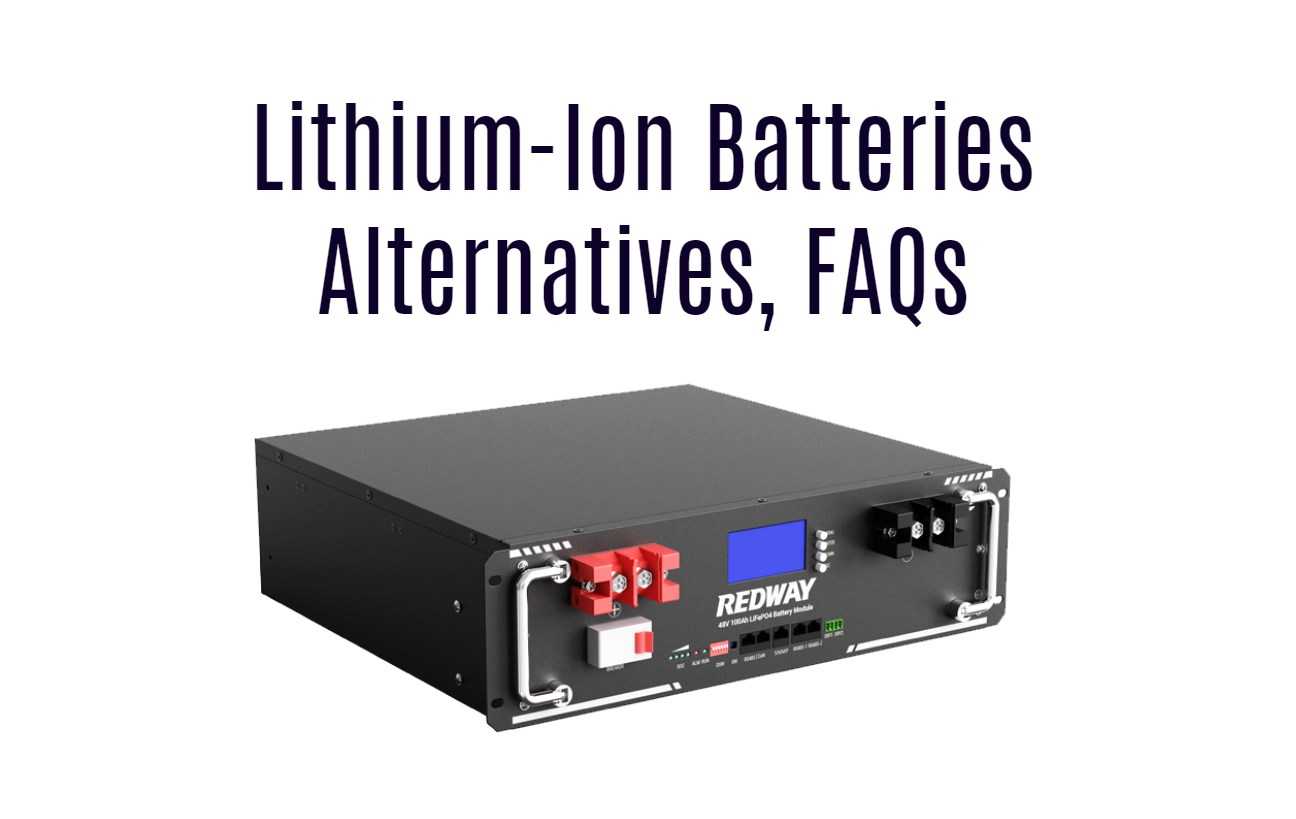As the demand for sustainable and efficient energy storage solutions grows, many are exploring alternatives to traditional lithium-ion batteries. This guide provides an overview of various alternatives, their benefits, and common questions regarding these technologies.
Key Alternatives to Lithium-Ion Batteries
- Sodium-Ion Batteries
- Overview: Sodium-ion batteries use sodium ions instead of lithium ions as charge carriers. Sodium is abundant and inexpensive, making it a promising alternative.
- Advantages: Lower cost due to the availability of sodium, reduced environmental impact, and potential for similar performance to lithium-ion batteries.
- Challenges: Currently, sodium-ion batteries have a shorter cycle life compared to lithium-ion batteries, typically around 2000-3000 cycles.
- Lithium-Sulfur Batteries
- Overview: These batteries replace the conventional cathode material with sulfur, offering higher energy density.
- Advantages: Potentially nine times the energy density of lithium-ion batteries and lower material costs.
- Challenges: They suffer from rapid degradation and short cycle life, often only lasting about 50 cycles in early prototypes.
- Solid-State Batteries
- Overview: Solid-state batteries utilize a solid electrolyte instead of a liquid one, enhancing safety and energy density.
- Advantages: Improved safety due to non-flammability, higher energy density, and longer lifespan (up to 6000 cycles).
- Challenges: Manufacturing complexities and higher costs currently limit their widespread adoption.
- Aqueous Magnesium Batteries
- Overview: These batteries use magnesium ions in an aqueous electrolyte, providing a safer alternative to lithium-ion technology.
- Advantages: Non-toxic materials and high capacity due to magnesium’s +2 charge.
- Challenges: Issues with moisture sensitivity and passivation need to be addressed for practical applications.
- Hydrogen Fuel Cells
- Overview: While not a direct battery alternative, hydrogen fuel cells generate electricity through chemical reactions between hydrogen and oxygen.
- Advantages: Clean energy production with water as the only byproduct.
- Challenges: Infrastructure for hydrogen fueling is limited, and production costs remain high.
- Flow Batteries
- Overview: Flow batteries store energy in liquid electrolytes that can be pumped through a cell stack.
- Advantages: Scalability for large-scale storage applications and long cycle life.
- Challenges: Lower energy density compared to lithium-ion batteries and complex systems that can be costly.
FAQs About Lithium-Ion Battery Alternatives
1. Are sodium-ion batteries ready for commercial use?
While sodium-ion technology is advancing rapidly, it is not yet widely adopted for consumer electronics or electric vehicles but shows promise for grid storage applications.
2. How do solid-state batteries compare in safety?
Solid-state batteries are generally safer than lithium-ion batteries because they eliminate the risk of leakage and combustion associated with liquid electrolytes.
3. What are the environmental benefits of using alternatives?
Many alternatives utilize more abundant materials like sodium or magnesium, reducing reliance on lithium mining, which has significant environmental impacts.
4. Can lithium-sulfur batteries replace lithium-ion in electric vehicles?
Currently, lithium-sulfur batteries face challenges with cycle life and stability that prevent them from being viable replacements in electric vehicles; however, ongoing research aims to improve their performance.
5. What is the future outlook for these alternatives?
As technology advances and research continues, several alternatives may become commercially viable, providing diverse options for energy storage that complement or compete with lithium-ion solutions.
Latest Developments in Battery Technology
- Researchers are making strides in improving the cycle life and efficiency of sodium-ion and solid-state batteries.
- Companies are investing heavily in developing scalable production methods for alternative battery technologies.
- The push for sustainable energy solutions is driving innovation in battery recycling processes to reduce environmental impact.
Redway Expert Comment
In our experience at Redway Battery, exploring alternatives to lithium-ion technology is essential for addressing future energy storage needs sustainably. Each alternative has unique advantages and challenges that must be considered based on specific applications. As research progresses, we anticipate significant advancements that will enhance the viability of these technologies.” In conclusion, while lithium-ion batteries currently dominate the market, several promising alternatives are emerging that could reshape the future of energy storage. By understanding these options and their implications, consumers and industries can make informed decisions about sustainable energy solutions.



